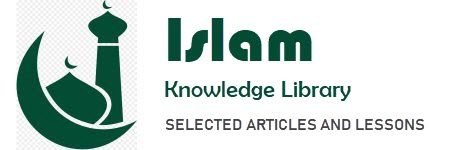
International Sighting
Another point that arises out of the hadith of Abu Hurairah is
whether the sighting of one region is good for the sighting of
the whole Ummah; i.e., should a New Yorker depend on the
sighting of hilal in Paris? There is a difference of opinions on
this subject. The reason for this dispute is due to a report
{athar) from Ibn Abbas. If I may state, there are differences
between the hadith from the Prophet (saas) and (athar) a report
from a companion. So this report is not the same as hadith.
In this athar, Kuraib (raa) reported that Umm Al-Fadl sent him
to Mu’awiyah in Shaam (Damascus). As he finished his busi-
ness and was preparing to return to Medina, the hilal of Rama-
dan was sighted in the Shaam area on Friday night, and people
started to fast the next day. As he arrived home in Medina at
the end of Ramadan, Ibn Abbas (raa) asked him about his trip.
Then they talked about the Hilal.
“When did they see it?” Ibn Abbas asked. Kuraib in-
formed Ibn Abbas that they saw it Friday night. Abdullah
Ibn Abbas wanted to know whether he himself saw the
Hilal. Kuraib replied, “Yes, as well as many people. They
fasted, and Mu’awiyah, too, fasted.” Ibn Abbas said,
“But we saw it Saturday night, and we will continue to
fast until we complete thirty days or see it.” Kuraib asked
him, “Aren’t you satisfied with the testimony of
Mu’awiyah and his fasting?” “No,” Ibn Abbas replied.
He continued, “That is what the Messenger of Allah
commanded us to do.” (Bukhari/Muslim)
This athar is the base text used by the minority, who ruled that
the people in each region should sight their own hilal. Then
they disagreed among themselves.
(1) Some said every town and city has its own exclusive testi-
mony in that its sighting is not binding on other towns. For in-
stance, sighting in Los Angeles is valid only for the residents of
that city, and not valid in San Diego. The testimony in New
York City is valid for the New Yorkers and not valid for the
residents of Buffalo.
(2) Every town has its exclusive testimony; however, the dif-
ference between this and the previous point is that the ruler or
the governor can demand that people under his order and in his
territorial influence fast according to the sighting of other
towns, for to him all the towns are one under his command.
(3) The countries in close proximity depend on each other’s tes-
timony. The countries which are far apart, do not. For instance,
the testimony in New York City is not valid in Los Angeles,
but it may be allowed for the East coast cities.
(4) Some say it depends on the region. For instance, people in
the eastern region will have one exclusive testimony as op-
posed to people in the western region, southern, and northern
regions.
(5) The last opinion is that of the Jamhur (the majority of
scholars). They said the differences of regions, distances and
terrain are of no consequence in determining the testimony of
the crescent. The only consideration is the sighting. If the tes-
timony of the hilal is ascertained by even one believer in any
part of the world, he or she is obligated to begin the fast. The
proof is the direct testimony of the Messenger of Allah (saas),
who said:
“Fast by sighting the hilal and break by sighting.” (Buk-
hari/Muslim)
This, the Jamhuur said, is an address (khitab), to all Muslims.
The testimony of any one Muslim is testimony for all Muslims.
As for the Kuraib report, they explained that it is not proof in
the order or strength of the above hadith. It is a known fact
among the scholars of Islamic jurisprudence that a report from
Sahabi (a companion), Tabi’een (the followers of the compan-
ions), and Tabi’e al-tabi’een (the followers of the followers of
the companions), and the ^Ulama (scholars) cannot be used in-
dependently as proof and evidence (hujjah). It will be evidence
only if the report is direct from the Messenger of Allah and not
their independent judgment (Ijtihad) what they infer or deduce
from what The Prophet said. The Kuraib report is in that latter
category, i.e., Ibn Abbas making Ijtihad, “This the Messenger
of Allah commanded us.” For that which the Messenger of
Allah commanded is the direct Hadith reported in the books of
hadith, such as Bukhari, Muslim, and many others:
“Do not fast until you see the crescent, and do not break
fast until you see the crescent; but if there are clouds,
complete the calculation of thirty days.” (Buk-
hari/Muslim)
This hadith does not specify one region from the other. Instead,
it addresses Muslims in general all over the globe. Because this
hadith is general, “\4am”, it will not be made specific “khaas”
without another direct hadith from the Prophet (saas), and there
is none. If there is no evidence from the Kuraib report, what
then is the reason for Abdullah bin Abbas’s, (raa) refusal to fast
according to the sighting in Shaam? The reason is his Ijtihad,
independent judgment, that the distance between the two re-
gions, Medina and Shaam, are far apart and large to the extent
that each should have its own independent sighting.
This Ijtihad at best is very weak because it is well known that
countries and towns do depend on each other’s witnesses and
information from all Islamic Sharee’ah areas, and undoubtedly
moon-sighting is one of them. Ibn Abbas did not state the text
from the Prophet (saas) nor did he state the deduction from any
text.
Further examination of this report unfortunately reveals that the
only evidence he states is the general opinion that Medinians
do not depend on the testimony of Shaamians. Indeed, if we
accept Kuraib’s report, it will mean that Muslims in one region
will have difficulty beginning the fast of Ramadan in unity.
Thus, international sighting is the correct interpretation and rul-
ing as advanced by the majority of Muslims scholars.
Logistically, it would have being impossible for Ibn ‘Abbas
(raa) to fast according to the sighting of Shaam even if he
wanted to for the simple reason that, during that period, it takes
express mail seven days from Shaam to Medina. Were Ibn
“Abbas decided to follow Shaam he and the people of Medina
would have to wait seven days to start or end Ramadan. There
were no communication devices such as telephones, faxes and
telegrams. May scholars believe that if Ibn Abbas were in posi-
tion to know that on the eve of Ramadan or “Eid, crescent has
been sighted in Shaam, he would have started fasting or end the
fasting. Therefore, the athar (the report of Kuraib) would be
used if only group of believers fund themselves in a town or
country in which they are cut off from outside world. No city
today can claim that. Allah is the best knower.
What Should Be Said at the Sighting of the Crescent
It is recommended that whoever sights the crescent (Hilal) of
Ramadan, or any other month for that matter, or being in-
formed about new crescent, should say:
“Allahu Akbar, Allahumma ahillahu ‘alaina bilyumni wa
Iman, Was Salaamata wal Islam, Ribbi wa rabbika illah. ”
(Tirmidhi)
Meaning: “Allah is Greatest. O Allah, make it the begin-
ning, the beginning of prosperity, faith, peace, and total
submission to Allah. Your Lord and mine is Allah.”
Also, it has been reported from Ali bin Abi Talib (raa) that the
Messenger said:
“If you witness the crescent of the new month, say: ”Al-
lahu Akbar (three times) Al-hamdu Lillah. Alladhi Kha-
laqani wa Khalaqaka, wa qaddara laka manajil wa
ja ‘alaka ayatna lil ‘alameen. ‘ ” (Naylul Awataar)
Meaning: “Allah is Greatest, (three times) praise be to Allah
who created me and you and decreed for you the phases
and made you a sign for the universe.”
